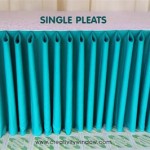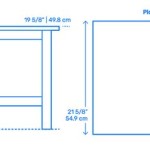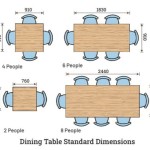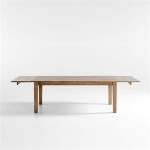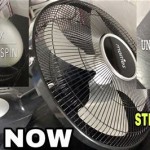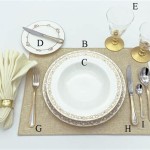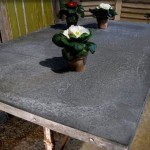MDF Pool Table Review: A Comprehensive Guide
Pool tables represent a significant investment, offering entertainment and social interaction for homes and recreational spaces. While solid wood pool tables are often considered the gold standard, MDF (Medium-Density Fiberboard) pool tables offer a more budget-friendly alternative. This review will provide a comprehensive analysis of MDF pool tables, examining their construction, performance characteristics, advantages, disadvantages, and key considerations for potential buyers.
MDF is an engineered wood product made by breaking down hardwood or softwood residuals into wood fibers, often in a defibrator, combining it with wax and a resin binder, and forming panels by applying high temperature and pressure. MDF is generally denser than plywood and is used in furniture, cabinetry, and flooring. Its properties contribute to its suitability – and limitations – in pool table construction.
Understanding MDF Construction in Pool Tables
The primary component of an MDF pool table is, naturally, the MDF itself. It's typically used for the cabinet, the legs, and, most critically, the playing surface. The quality of the MDF itself plays a significant role in the overall quality of the table. Higher density MDF will offer better stability and resistance to warping, which is crucial for maintaining a level playing surface. The thickness of the MDF used for the playing surface is also a key factor; a thicker surface will generally be more stable and resistant to sagging over time.
In many MDF pool tables, the slate playing surface – typically found in higher-end tables – is replaced with a thick sheet of MDF. This is one of the primary ways manufacturers reduce costs. The surface is then covered with felt, similar to traditional slate tables. However, the properties of MDF differ significantly from slate, impacting gameplay.
Beyond the MDF itself, the construction methods employed by the manufacturer are crucial. Reinforcements, such as internal bracing and crossbeams, are essential to prevent warping and ensure the table remains level. The quality of the fasteners and adhesives used in the assembly also contributes to the table's overall durability and longevity.
The finish applied to the MDF is another important consideration. A durable, scratch-resistant finish will protect the table from wear and tear and maintain its aesthetic appeal. The finish should also be resistant to moisture, as MDF can be susceptible to damage from humidity.
Performance Characteristics of MDF Pool Tables
The performance of an MDF pool table is arguably the most important factor for potential buyers. While MDF tables can provide a reasonable playing experience, it's essential to understand their limitations compared to slate tables.
One of the main differences lies in the flatness and consistency of the playing surface. Slate is naturally flat and can be precisely leveled, providing a consistent and predictable ball roll. MDF, on the other hand, is more susceptible to imperfections and variations in thickness. While manufacturers strive to create flat surfaces, it's more challenging to achieve the same level of precision as with slate.
The ball response on an MDF surface also differs from that of slate. Slate provides a harder, more responsive surface, resulting in faster ball speeds and more accurate rebounds. MDF, being less dense and more absorbent, tends to dampen the ball's energy, leading to slower ball speeds and potentially less predictable rebounds. This can affect the player's ability to control the game and execute precise shots.
The felt covering the MDF also plays a role in the table's performance. The quality and type of felt can influence ball speed, spin, and overall gameplay. While professional-grade felt can improve the playing experience on an MDF table, it cannot fully compensate for the inherent differences between MDF and slate.
Furthermore, the stability of the table can affect its performance. If the table is not properly leveled or if the MDF is prone to warping, the ball roll may be uneven and unpredictable. Regular maintenance, including leveling and tightening fasteners, is essential to maintain the table's performance over time.
Advantages of MDF Pool Tables
Despite their limitations, MDF pool tables offer several advantages, primarily related to cost and portability.
Cost-Effectiveness: The most significant advantage of MDF pool tables is their lower price point compared to slate tables. This makes them an attractive option for budget-conscious buyers who want to enjoy the game of pool without investing in a more expensive table. The reduced cost stems from the lower material cost of MDF compared to slate, as well as the simplified manufacturing processes involved in working with MDF.
Lighter Weight: MDF pool tables are generally lighter than slate tables, making them easier to move and transport. This can be an advantage for individuals who plan to move the table frequently or who have limited space. The lighter weight also simplifies the assembly process. Some lower-end models may even be assembled by the consumer, rather than requiring professional installation. However, it is imperative to follow careful steps and utilize accurate levels to ensure a flat playing surface.
Aesthetics: MDF can be easily shaped and finished, allowing manufacturers to create a wide range of aesthetically pleasing designs. MDF pool tables are available in various styles and finishes, allowing buyers to choose a table that complements their home décor. The smooth surface of MDF also provides a good base for applying intricate veneers and decorative elements.
Availability: MDF pool tables are widely available from various retailers, both online and in brick-and-mortar stores. This makes it easy for buyers to compare prices and features and find a table that meets their needs. The widespread availability also means that replacement parts and accessories are readily accessible.
Disadvantages of MDF Pool Tables
The drawbacks of MDF pool tables are directly related to the material properties of MDF itself, especially when compared to slate.
Susceptibility to Moisture: MDF is highly susceptible to moisture damage. Exposure to humidity or spills can cause the MDF to swell, warp, or delaminate. This can significantly affect the table's performance and shorten its lifespan. It is crucial to keep MDF pool tables in a dry, temperature-controlled environment to prevent moisture damage.
Lower Durability: Compared to slate, MDF is less durable and more prone to damage from impacts and scratches. Dropping heavy objects on the table or using abrasive cleaners can damage the surface of the MDF. The edges and corners of MDF tables are also more vulnerable to chipping and wear and tear.
Limited Longevity: Due to their susceptibility to moisture damage and lower durability, MDF pool tables typically have a shorter lifespan than slate tables. While a well-maintained slate table can last for decades, an MDF table may only last for a few years, depending on usage and environmental conditions. This is an important consideration for buyers who are looking for a long-term investment.
Inconsistent Play: As previously mentioned, the playing surface of an MDF pool table is less consistent and predictable than that of a slate table. Variations in the MDF's density and flatness can affect the ball roll and rebound, making it more challenging to play accurately. The dampening effect of MDF on the ball's energy can also make the game feel less responsive.
Key Considerations for Purchasing an MDF Pool Table
For buyers considering an MDF pool table, several key factors should be taken into account to ensure a satisfactory purchase.
Intended Use: The intended use of the table should be a primary consideration. If the table is intended for casual recreational use, an MDF table may be sufficient. However, if the table is intended for more serious players or for frequent use, a slate table may be a better investment.
Budget: The budget is, of course, a crucial factor. MDF pool tables offer a more affordable option for buyers with limited budgets. However, it is essential to balance the cost savings with the potential drawbacks in terms of performance and durability.
Space Constraints: The available space should also be considered. MDF pool tables are generally lighter and easier to move than slate tables, making them a better option for smaller spaces or for individuals who plan to move the table frequently. However, the overall dimensions of the table should still be carefully considered to ensure it fits comfortably in the designated space.
Environmental Conditions: The environmental conditions in the room where the table will be located should be taken into account. MDF is susceptible to moisture damage, so it is crucial to keep the table in a dry, temperature-controlled environment. If the room is prone to humidity or temperature fluctuations, a slate table may be a more durable option.
Brand Reputation and Warranty: It is advisable to purchase an MDF pool table from a reputable brand with a good warranty. This will provide some assurance of the table's quality and offer protection against defects. Researching customer reviews and ratings can also provide valuable insights into the table's performance and durability.
In conclusion, MDF pool tables offer a budget-friendly alternative to slate tables, providing a reasonable playing experience for casual recreational use. However, their limitations in terms of performance, durability, and susceptibility to moisture damage should be carefully considered. By understanding the advantages and disadvantages of MDF pool tables and taking into account the key considerations outlined above, buyers can make an informed decision and choose a table that meets their needs and budget.

Mdf Vs Slate Pool Tables

Slate Vs Mdf Pool Table Honest Review

Mdf Pool Tables Vs Slate Review

Slate Vs Mdf Pool Table Honest Review

Pool Table Buyer S Guide Buy The Right For You

What S The Difference Between Mdf Slate Bed Pool Tables

What S The Difference Between Mdf Slate Bed Pool Tables

Pool Table Buyer S Guide Buy The Right For You

Top 5 Pool Tables In The Tested Reviewed

6ft Mdf Small Pool Table For China Billiard And Made In Com

